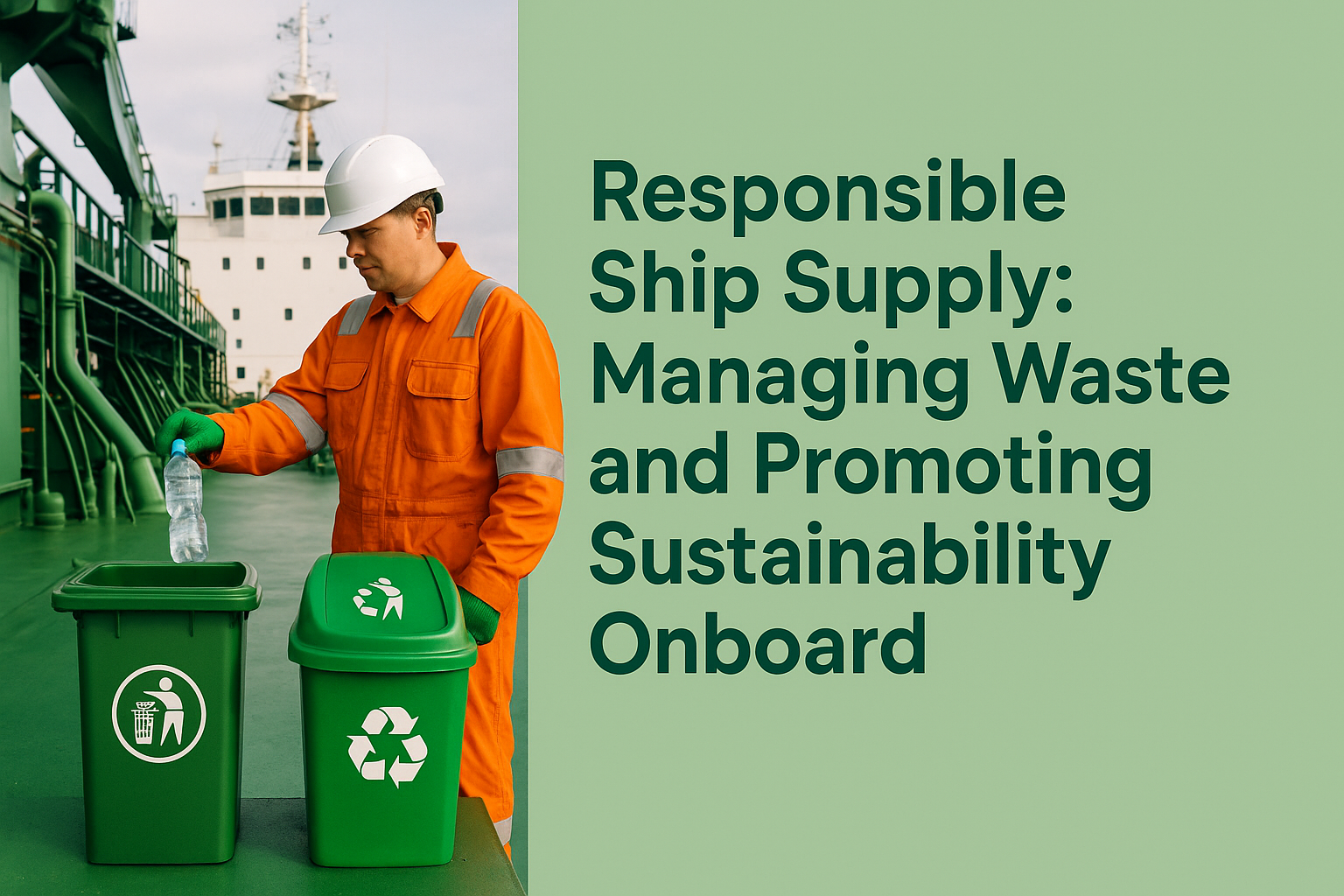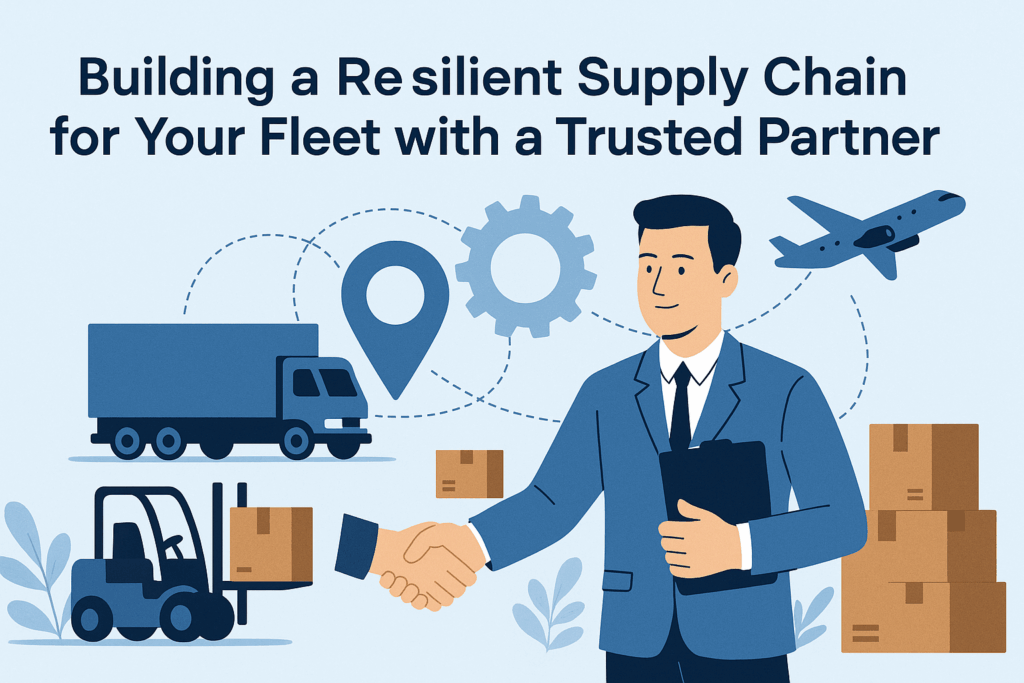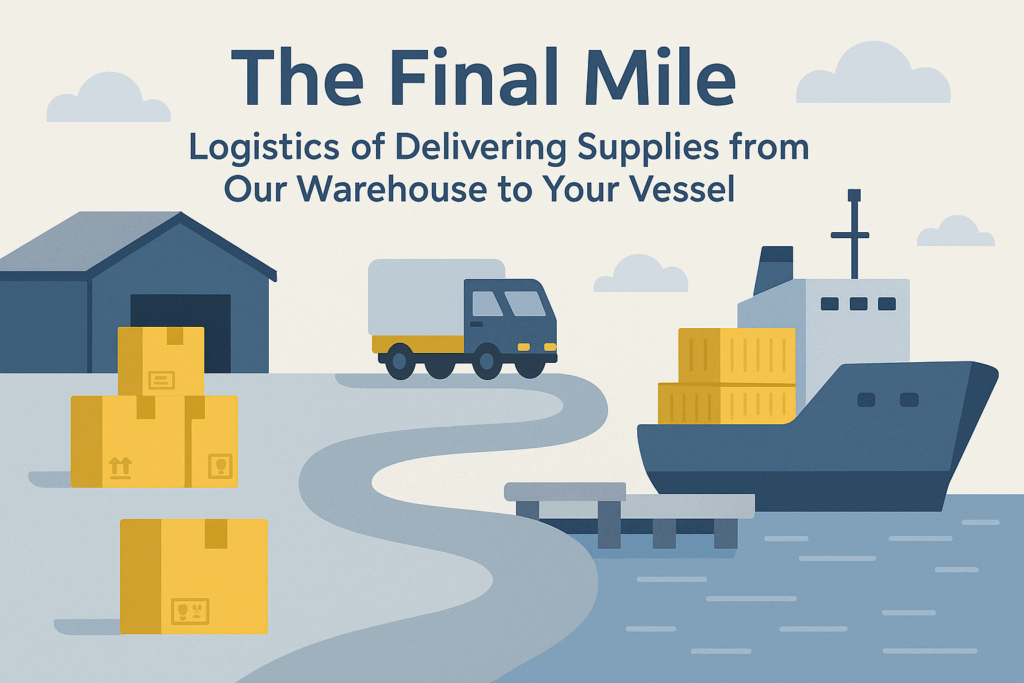At Astro Ship Supply, we understand that true efficiency extends beyond timely deliveries and quality provisions. It encompasses a commitment to sustainable practices that resonate throughout the entire supply chain. Our mission is not just to equip vessels but to empower them with the means to operate more responsibly, minimizing their environmental impact while maximizing operational effectiveness.
—
The Urgent Need for Sustainable Maritime Practices
The sheer volume of goods transported by sea annually generates substantial waste, ranging from operational waste like packaging and food scraps to hazardous materials such as oils and chemicals. Without proper management, this waste can lead to marine pollution, threatening biodiversity, contaminating fishing grounds, and impacting coastal communities. International regulations, such as the **MARPOL Convention**, have been instrumental in setting standards for pollution prevention from ships. However, compliance alone is not enough; a proactive approach towards sustainability is essential.
Understanding the Types of Onboard Waste
To effectively manage waste, it’s crucial to categorize it. Onboard waste typically falls into several key categories:
- Solid Waste (Garbage): This includes food waste, plastics, glass, paper, rags, and general refuse. It’s often the most visible and voluminous waste stream.
- Liquid Waste: Bilge water (a mixture of water, oil, lubricants, and chemicals), sewage, and greywater (from showers, sinks, and laundries).
- Hazardous Waste: Oily rags, used paints, solvents, medical waste, batteries, and electronic waste. These require specialized handling and disposal due to their potential environmental and health risks.
- Cargo Residues: Leftover materials from cargo, especially bulk cargo, which can be pollutants if not properly managed.
The Environmental and Economic Imperatives
Beyond regulatory compliance, there are compelling reasons for embracing sustainable waste management practices:
- Environmental Protection: Preventing marine pollution preserves fragile ecosystems, protects marine life, and maintains the health of our oceans.
- Reputational Enhancement: Companies with strong environmental credentials attract more business, enhance their brand image, and build trust with stakeholders.
- Cost Savings: Efficient waste segregation, reduction, and recycling can lead to significant cost savings in waste disposal fees, which can be substantial in many ports.
- Operational Efficiency: Streamlined waste management processes contribute to a more organized and efficient onboard environment.
- Crew Morale: A commitment to sustainability can boost crew morale, as individuals feel they are contributing to a larger, positive cause.
—
Strategies for Responsible Ship Supply and Onboard Waste Management
Achieving responsible ship supply involves a holistic approach, beginning with procurement and extending through onboard waste management and disposal. Here’s how to integrate sustainability into every step of the process:
1. Sustainable Sourcing and Procurement
The journey to reduced waste starts before provisions even reach the vessel. Ship chandlers play a pivotal role here.
Embracing Minimal Packaging
One of the most impactful strategies is to prioritize suppliers who offer products with **minimal or recyclable packaging**. For instance, choosing fresh produce delivered in reusable crates rather than single-use plastic bags significantly cuts down on onboard plastic waste. At Astro Ship Supply, we work closely with our partners to optimize packaging, favoring bulk deliveries where feasible and investing in returnable containers.
Bulk Purchasing and Smart Provisioning
Purchasing items in bulk whenever possible reduces individual packaging waste. Moreover, precise provisioning, based on accurate crew numbers and voyage duration, minimizes food waste. Modern inventory management systems can help optimize this process, preventing overstocking and subsequent spoilage. Our expertise in Provisions & Food Supply ensures that vessels receive exactly what they need, reducing unnecessary waste.
Eco-Friendly Product Selection
From cleaning supplies to Cabin & Accommodation essentials, opting for environmentally friendly alternatives makes a difference. Biodegradable detergents, non-toxic paints, and energy-efficient appliances contribute to a healthier onboard environment and reduce the discharge of harmful substances into the ocean.
2. Onboard Waste Segregation and Reduction
Once supplies are onboard, effective waste management becomes paramount.
Implementing Robust Segregation Systems
The cornerstone of effective waste management is **rigorous segregation at source**. Providing clearly labeled bins for different waste streams—plastics, glass, paper, food waste, and hazardous materials—makes it easier for the crew to sort waste correctly. Regular training and clear guidelines are essential to ensure compliance.
Waste Reduction Initiatives
- Composting Food Waste: For vessels with the capacity, composting food waste can significantly reduce the volume of organic waste and create valuable soil amendments.
- Water Conservation: Implementing water-saving fixtures in galleys and accommodations, and educating the crew on mindful water usage, reduces greywater discharge.
- Energy Efficiency: Regular maintenance of machinery, optimizing engine performance, and using energy-efficient lighting and appliances reduce fuel consumption and associated emissions.
3. Responsible Disposal and Recycling
The final stage of waste management involves proper disposal, either at sea (under strict MARPOL guidelines) or, preferably, at port facilities.
Port Reception Facilities (PRFs)
Utilizing adequate and readily available **Port Reception Facilities (PRFs)** is crucial. Ports like Houston have invested in advanced PRFs that can handle various waste streams, including hazardous materials. Establishing strong relationships with port authorities and waste disposal companies ensures seamless and compliant disposal.
Recycling Programs
Working with port-side recycling facilities to dispose of segregated recyclables like plastics, glass, and metal contributes to a circular economy. Some innovative programs even allow for the recycling of specific items like cooking oil into biofuels.
—
Comparative Analysis: Traditional vs. Sustainable Ship Supply
Let’s consider a comparative analysis to highlight the tangible benefits of adopting a sustainable approach to ship supply and waste management.
| Feature | Traditional Ship Supply & Waste Management | Sustainable Ship Supply & Waste Management |
|---|---|---|
| Procurement Focus | Lowest immediate cost, quantity over quality. | Value, minimal packaging, eco-friendly options. |
| Packaging Waste | High volume of single-use plastics and non-recyclables. | Significantly reduced; emphasis on reusable and recyclable materials. |
| Onboard Waste Handling | Limited segregation, mixed waste streams, potential for illegal discharge. | Rigorous segregation, waste reduction initiatives, composting where feasible. |
| Disposal Methods | Reliance on at-sea disposal (if permitted), basic port disposal. | Prioritization of PRFs, active participation in recycling programs. |
| Environmental Impact | Higher carbon footprint, increased marine pollution risk. | Reduced emissions, minimized pollution, enhanced biodiversity protection. |
| Operational Costs (Long-Term) | Higher disposal fees, potential fines for non-compliance. | Reduced disposal costs, improved energy efficiency, lower risk of penalties. |
| Reputation & Compliance | Risk of negative publicity, struggling with regulatory compliance. | Enhanced brand image, strong compliance, potential for industry leadership. |
—
Case Studies: Sustainability in Action
Case Study 1: The “Green Fleet” Initiative
A major shipping company, facing rising disposal costs and increasing environmental scrutiny, launched a “Green Fleet” initiative. They partnered with chandlers committed to sustainable sourcing, implemented stringent onboard waste segregation, and invested in compactors and shredders. The results were impressive: a 30% reduction in solid waste volume, a 15% decrease in overall waste disposal costs, and a significant improvement in crew environmental awareness. This initiative also led to a positive public perception and attracted new clients seeking environmentally responsible partners.
Case Study 2: Port of Houston’s PRF Enhancement
Recognizing the growing demand for sustainable waste management, the Port of Houston expanded its Port Reception Facilities (PRFs). They now offer specialized services for hazardous waste, comprehensive recycling programs for plastics and metals, and even a food waste digester. This enhancement not only improved environmental outcomes but also streamlined the waste disposal process for visiting vessels, making Houston a more attractive and efficient port for environmentally conscious operators.
—
Ensuring Compliance and Certifications
Adhering to international and national regulations is paramount. Organizations like Astro Ship Supply are committed to upholding the highest standards.
- ISO 9001:2015 Quality Management System: Ensures that our processes are streamlined and meet the highest quality standards, directly impacting reliable and consistent service delivery.
- HACCP Food Safety Management: Guarantees the safety and quality of all food provisions, minimizing spoilage and waste.
- Texas Department of State Health Services Compliance: Our commitment to health services compliance further underscores our dedication to providing safe and high-quality provisions.
- International Ship and Port Facility Security (ISPS) Code Compliance: While primarily security-focused, it ensures a secure supply chain, preventing disruptions that could lead to waste or inefficiency.
- U.S. Customs and Border Protection Requirements: Compliance with these requirements ensures smooth and efficient deliveries, reducing delays and potential waste from stagnant inventory.
By partnering with a chandler that prioritizes these certifications, vessels can rest assured that their supply chain is not only efficient but also compliant and sustainable.
—
The Future of Ship Supply: Innovation and Collaboration
The maritime industry is continuously evolving. The future of responsible ship supply lies in continued innovation and collaboration across the value chain. This includes:
- Technological Advancements: Development of more efficient waste treatment technologies onboard, such as advanced incinerators or pyrolysis units.
- Digitalization: Utilizing digital platforms for better inventory management, demand forecasting, and supply chain optimization to minimize waste.
- Cross-Industry Collaboration: Ship owners, port authorities, chandlers, and waste management companies working together to create integrated, sustainable solutions.
- Circular Economy Principles: Moving beyond just recycling to embrace a circular economy model where waste is seen as a resource, leading to innovative re-use and repurpose initiatives.
As Houston’s premier ship chandlery, Astro Ship Supply is actively engaged in exploring and adopting these innovations. Our commitment to providing “Smart Solutions” means we are constantly seeking ways to enhance sustainability within our operations and for our clients.
—
Frequently Asked Questions (FAQ) About Responsible Ship Supply and Waste Management
Why is sustainable ship supply important for the maritime industry?
Sustainable ship supply is crucial for minimizing the environmental impact of maritime operations, particularly concerning marine pollution. It helps preserve ocean ecosystems, enhances corporate reputation, leads to cost savings through efficient resource management, and ensures compliance with increasingly stringent international regulations like MARPOL. It’s a proactive approach to protecting our planet while fostering long-term operational viability.
What are the main types of waste generated onboard ships?
Onboard waste generally falls into several categories: solid waste (garbage like food scraps, plastics, paper), liquid waste (bilge water, sewage, greywater), hazardous waste (oils, chemicals, batteries), and cargo residues. Each type requires specific handling and disposal methods to prevent environmental contamination.
How can ship chandlers contribute to responsible ship supply?
Ship chandlers play a vital role by offering products with minimal and recyclable packaging, promoting bulk purchasing, providing eco-friendly alternatives for provisions and technical supplies, and ensuring efficient, demand-driven provisioning to reduce excess waste. Companies like Astro Ship Supply prioritize these sustainable sourcing practices.
What is the role of Port Reception Facilities (PRFs) in waste management?
Port Reception Facilities (PRFs) are critical for the proper disposal of waste generated onboard ships when they are in port. They provide designated facilities for various waste streams, including hazardous materials and recyclables, ensuring that waste is handled and processed in an environmentally responsible manner. Utilizing PRFs prevents illegal discharges at sea and supports a circular economy.
How does waste segregation onboard benefit overall sustainability?
Waste segregation at source is fundamental to effective waste management. By separating waste into different categories (e.g., plastics, glass, food waste), it becomes easier to recycle, compost, or dispose of materials appropriately. This reduces the volume of general waste, lowers disposal costs, minimizes environmental impact, and improves the efficiency of onboard operations.
—
Conclusion: Charting a Course for a Greener Future
Responsible ship supply and effective onboard waste management are no longer optional extras; they are fundamental pillars of a sustainable maritime industry. By embracing sustainable sourcing, implementing robust onboard waste management systems, and utilizing proper disposal channels, we can collectively chart a course towards a greener, healthier future for our oceans.
At Astro Ship Supply, our commitment goes beyond just delivering provisions and supplies. We are dedicated to partnering with the maritime community to foster practices that promote environmental stewardship and operational excellence. By making conscious choices in our supply chain, we empower vessels to reduce their environmental footprint and contribute to a more sustainable global shipping industry. Let’s work together to ensure that every voyage leaves behind a cleaner wake.






